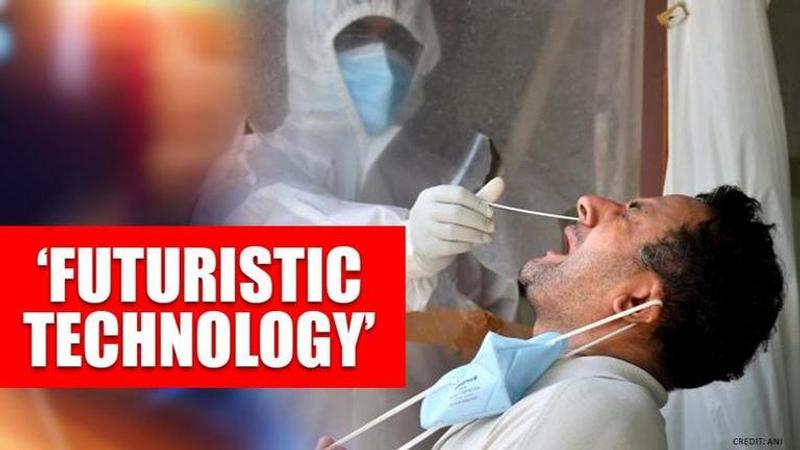Published 18:07 IST, September 20th 2020
India's paper-strip COVID-19 test, named after Satyajit Ray's 'Feluda', gets DCGI approval
The Drugs Controller General of India (DCGI) approved the use of paper-based COVID-19 test strip ‘Feluda’ developed by researchers from the CSIR.

The Drugs Controller General of India (DCGI) approved the use of paper-based COVID-19 test strip ‘Feluda’ developed by researchers from the Council of Scientific & Industrial Research (CSIR). The Ministry of Science and Technology announced on September 19 that DCGI has given regulatory approval to the Tata CRISPR (Clustered Regularly Interspaced Short Palindromic Repeats) test.
A seven-member team led by two Bengali-origin scientists Dr Souvik Maiti and Dr Debojyoti Chakraborty, working at CSIR’s Institute of Genomics and Integrative Biology, came up with the new test. The paper-based test has been named after famous detective character created by legendary filmmaker-author Satyajit Ray. Feluda stands for FNCAS9 Editor Linked Uniform Detection Assay and the acronym is inspired by the famous fictional Bengali sleuth.
In an interview with Hindustan Times, Dr Chakraborty had said that he was a fan of Satyajit Ray's works and his wife suggested to name the COVID-19 test after the fictional character Feluda. The detective was known for his ability to quickly solve criminal cases and the rapid COVID-19 test using the paper-based strip may be the reason name it after Feluda.
According to media reports, the two scientists had been working on the tool for around two years but started testing in late January whether it works for the novel coronavirus or not. The ministry announced that Tata CRISPR test met high-quality benchmarks with 96% sensitivity and 98% specificity for detecting the novel coronavirus.
“This test uses an indigenously developed, cutting-edge CRISPR technology for detection of the genomic sequence of SARS-CoV-2 virus. CRISPR is a genome editing technology to diagnosing diseases,” the statement read.
'Futuristic technology'
The Tata CRISPR test has become the world’s first diagnostic test to deploy a specially adapted Cas9 protein to successfully detect SARS-CoV-2, marking a significant achievement for the Indian scientific community. The ministry stated that the futuristic technology can also be configured for detection of multiple other pathogens in the future.
The government of India has called upon the scientists and startups across the country to come together and develop low-cost and improved methods to help combat the virus. The cost of the test is being speculated to be anywhere between Rs 500-700 which is way below the amount currently charged by private laboratories.
Girish Krishnamurthy, CEO, TATA Medical and Diagnostics Ltd, said in a statement that the regulatory approval will give a boost to the country’s efforts in fighting the global pandemic. He stressed that commercialisation of the Tata CRISPR test reflects the tremendous R&D talent in the country, which can collaborate to transform India’s contributions to the global healthcare and scientific research world.
Updated 18:07 IST, September 20th 2020




